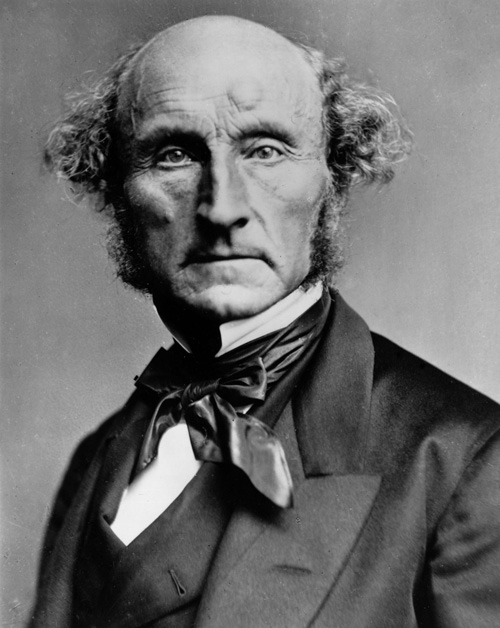
Your complimentary articles
You’ve read one of your four complimentary articles for this month.
You can read four articles free per month. To have complete access to the thousands of philosophy articles on this site, please
Philosophical Haiku
John Stuart Mill (1806-1873)
by Terence Green
The worst tyranny:
Fear not the oppressive state
but nosey neighbours.

John Stuart Mill’s upbringing was not entirely typical. His father James was chummy with Jeremy Bentham, and shared Bentham’s enthusiasm for the utilitarian approach to life. In practice, this meant that basing your decisions upon your feelings was seen as a weak, womanly thing, while being rational about everything was manly and admirable. So, not allowed to play with other children – parents take note – John Stuart was reading Greek by the age of three (mind you, a lot of Greek children can do that); he had read all of Herodotus and a bunch of other classics by the age of eight; began studying Latin at the same age; made his way through Euclid; got up to speed with arithmetic, geometry and physics; and at the age of ten liked to relax of an evening by reading beguiling Latin versions of Plato and Demosthenes. By the age of nineteen, Mill knew more than anyone else ever! Then, even though it was not part of the utilitarian education scheme, he had a nervous breakdown. This perhaps proved to be Mill’s greatest lesson in life, and all his work thereafter demonstrates a poignant awareness that we are not just rational but also emotional creatures.
John Stuart Mill is perhaps most famous for his essay On Liberty (1859), in which he argues for the right of people to live as they wish. Here he develops the famous ‘Harm Principle’: power can only be exercised over a person against his will if it is necessary to prevent him from doing harm to others. Otherwise, if people wish to live in ways that strikes us, right-thinking people that we are, as patently absurd, but which don’t harm anyone else, then we must leave them to their absurdities. This, Mill says, is important, because individuality is an essential ingredient in human well-being, and however ridiculous our life-choices may be, what matters is that they are ours and not imposed on us. “Just let me be!” exclaims Mill – and without being overly Freudian, in this one can almost hear the sad voice of a little boy as he cries silent tears over his well-thumbed copy of Euclid.
© Terence Green 2018
Terence is a writer, historian, and lecturer, and lives with his wife and their dog in Paekakariki, NZ. hardlysurprised.blogspot.co.nz









